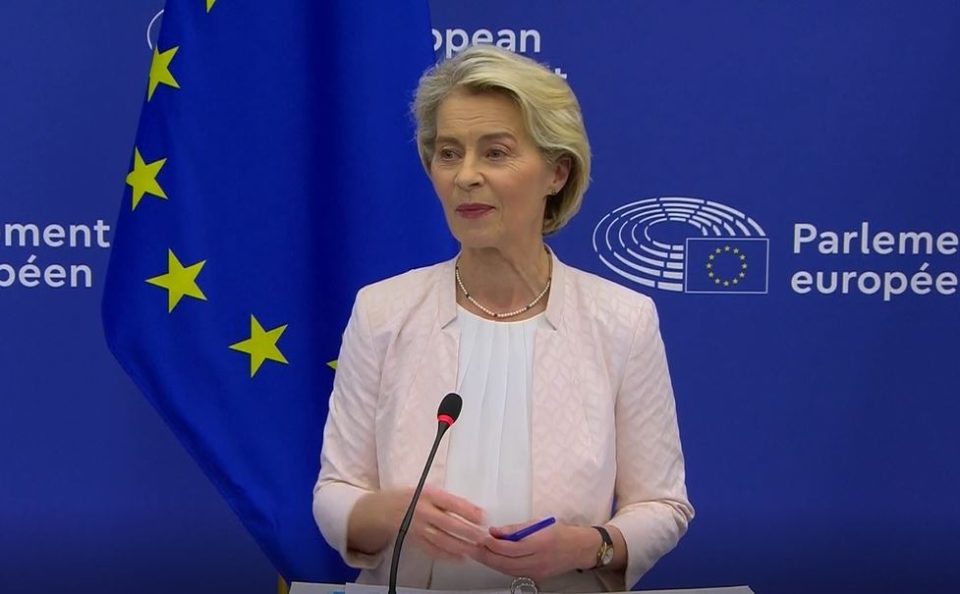Belgium officially nominated Foreign Minister Hadja Lahbib on Monday, resulting in only eight women being proposed by EU member states for Commissioner positions out of the total 25 nominations submitted. Consequently, European Commission President Ursula von der Leyen is poised to lead a commission predominantly composed of men.
After her re-election in July, von der Leyen requested that EU countries nominate both a male and a female candidate to achieve gender balance within the Commission. However, this request was only accommodated by countries that chose to re-nominate existing commissioners, such as France, Hungary, and Latvia. The majority of EU governments submitted only one male candidate, failing to meet the desired gender parity.
If the current nominations remain unchanged and the candidates are approved to join the EU’s executive branch, men could constitute around two-thirds of the new European Commission. Bulgaria stands out as the only country to publicly nominate both a man and a woman, announcing former Foreign Minister Ekaterina Zakharieva and former Environment Minister Julian Popov on Friday.
Each of the Commission’s 27 members is entitled to nominate one Commissioner, including von der Leyen herself, who is German. Presently, 12 of the 27 Commissioners are women. The European Commission functions as the EU’s primary executive body, responsible for proposing new legislation, ensuring compliance with EU treaties, and employing approximately 32,000 staff members.
Despite von der Leyen’s likely frustration, EU countries are not legally obligated to comply with her request for gender-balanced nominations. EU treaties do not explicitly require gender parity; they only mandate that the Commission reflect the demographics and geographical distribution of the member states as a whole.
However, it remains possible that some nominees may not gain the necessary approval after hearings by European Parliament committees. Should this occur, the respective EU countries would need to propose new candidates for the Commission. Alternatively, von der Leyen could request that countries reconsider their nominations beforehand to ensure compliance with the desired gender balance.





Comments are closed for this post.